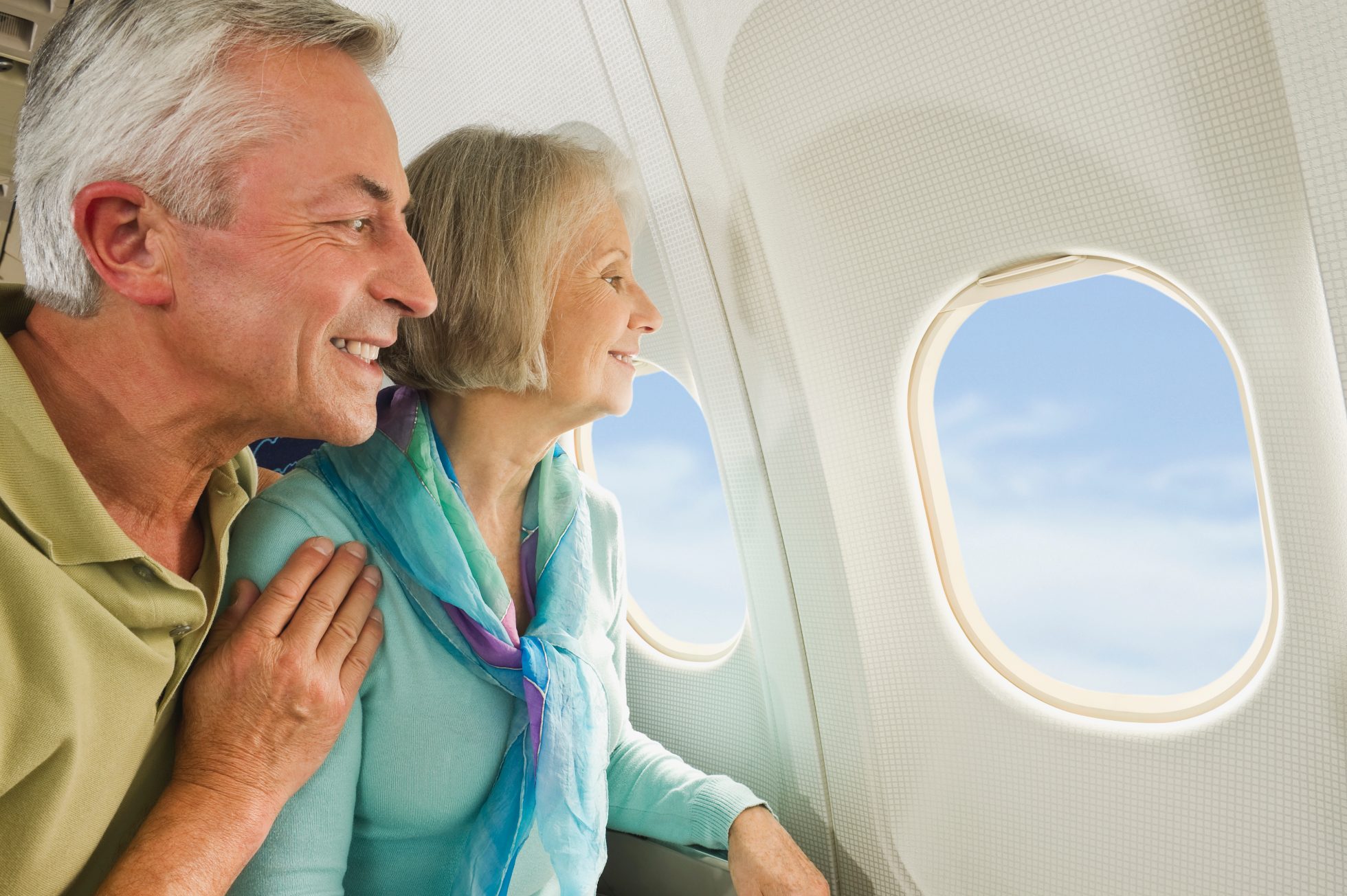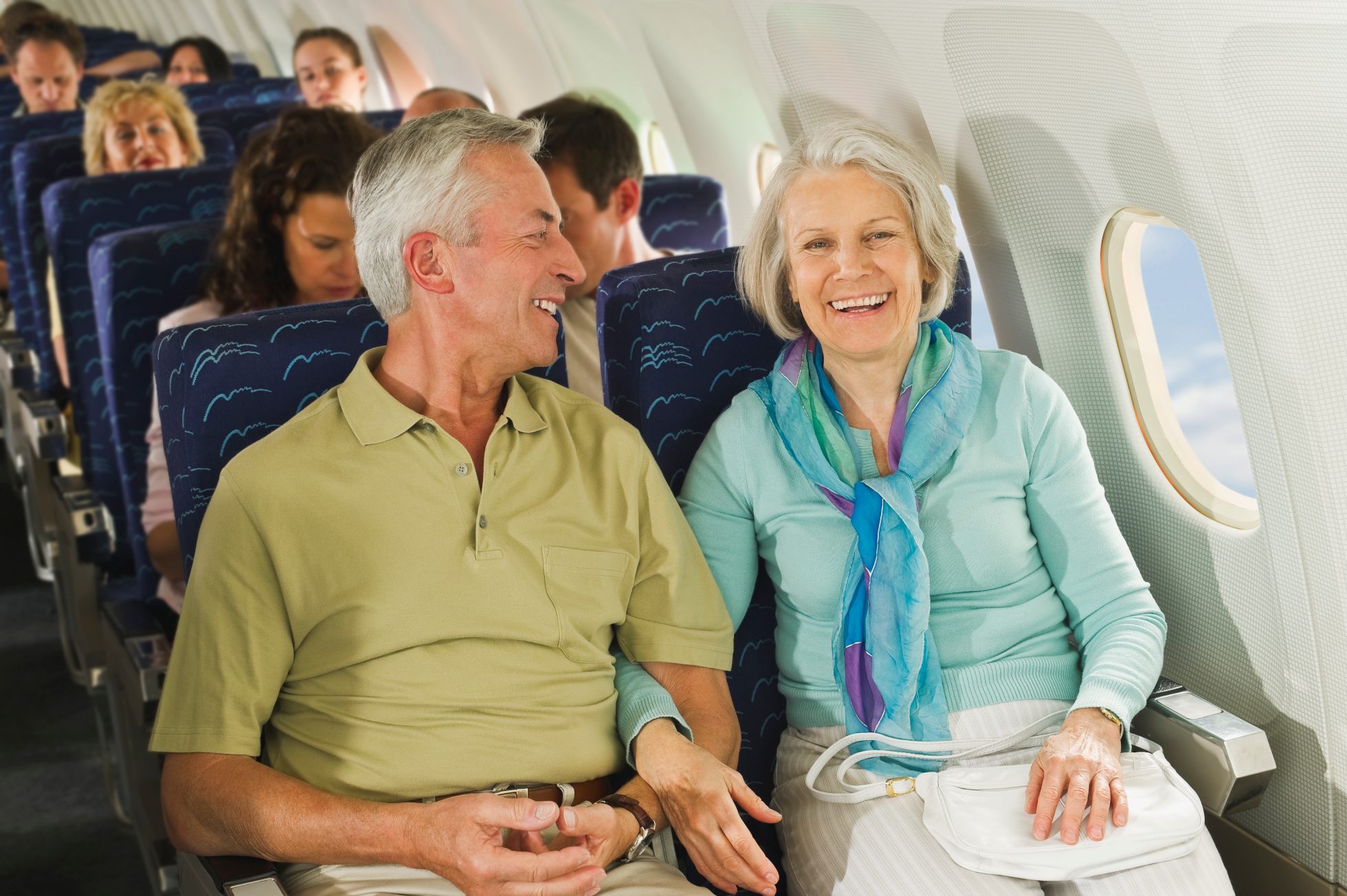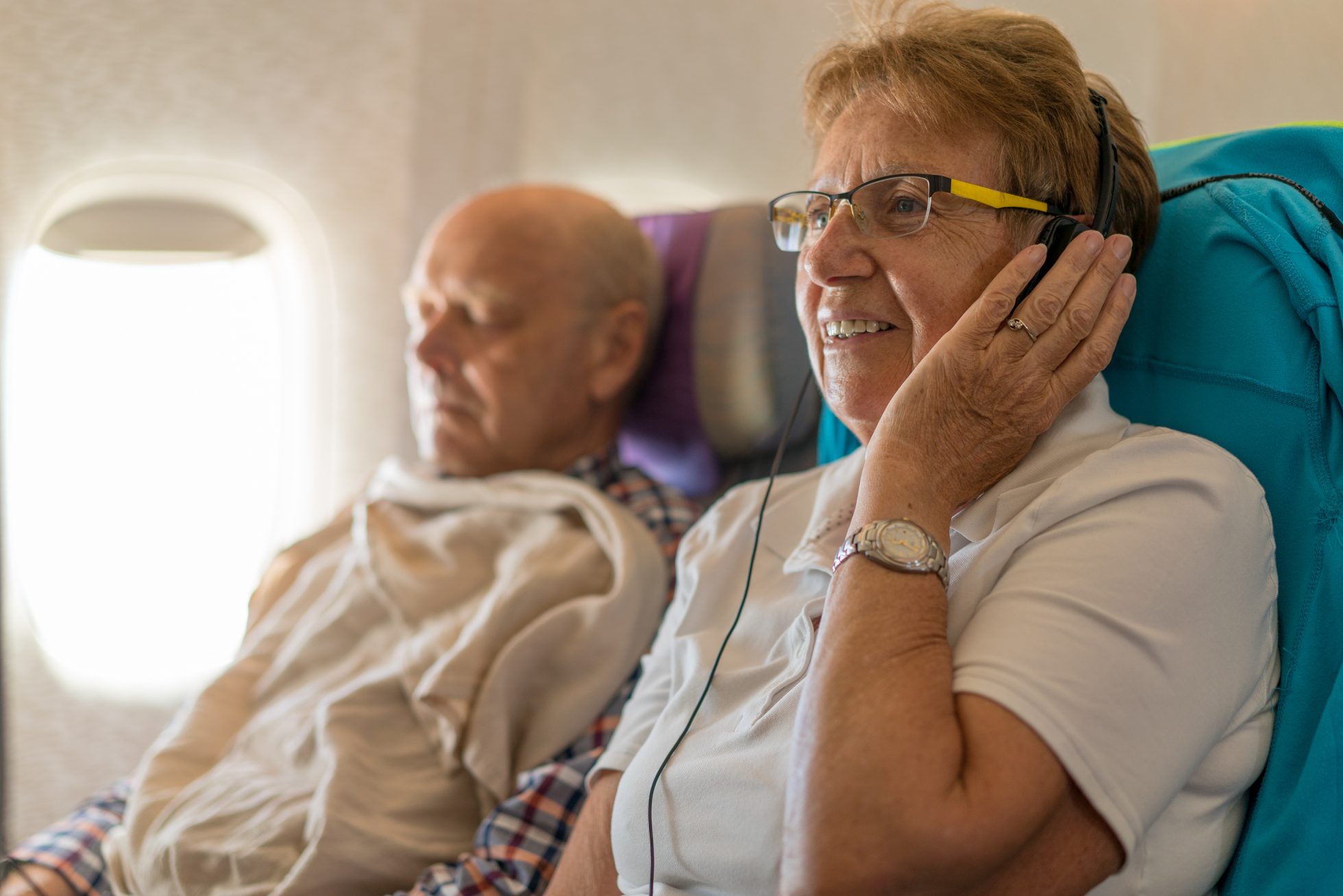Seniors on board. What should you keep in mind when planning air travel?
Reading time 🕗 5 minutes | March 28, 2024 | The material was prepared by Politykazdrowotna.com

Air travel for any senior citizen is an extremely convenient, time-saving means of transportation. Senior citizens who dream of exploring more countries or want to meet relatives abroad can realize their plans and reach the farthest corners of the world in just a few hours. Airlines today offer a range of special services that travelers can take advantage of: assistance at the airport, a special diet or assistance with boarding. Senior travel is thus more accessible and comfortable, and the principle is simple - proper preparation is the key to a safe flight.
✅ From this article you will learn:
- How to prepare a senior for safe air travel.
- What to look for when buying a ticket for a senior citizen.
- What services airlines offer to make travel easier for seniors.
- What steps should be taken to ensure comfort and safety during the flight.
- How to plan packing and what formalities to complete before traveling.
- What items can make the time spent on board more enjoyable.
- Seniors on air travel - expert advice
- Step 1: Consult your doctor
- Step 2: Purchase a ticket with special needs in mind
- Step 3: Properly pack your suitcase and complete the paperwork
- Step 4: Stock up on travel medications in your carry-on luggage
- Step 5: Fly safely - inform the crew of your condition
- Step 6: Comfortable travel for seniors with pleasantries
- Summary
- Seniors on air travel - expert advice
Read also:
Seniors on air travel - expert advice
The increase in the number of senior travelers is the result of seniors' improving quality of life, especially in developed and developing countries. The time spent in retirement is lengthening, and there is a greater desire to "catch up" on travel caused by lack of time or an excess of other responsibilities in earlier periods of life. Fulfilling the dream of a trip just at senior age can turn out to be a wonderful experience and one of life's best adventures. Where do you start your preparations?
Step 1: Consult your doctor
Age-related changes and possible chronic diseases can affect your ability to travel safely. Before making travel plans, it's a good idea to consult with your health care provider to assess your overall health and get recommendations for safe travel. Your doctor may adjust your treatment plans, suggest appropriate precautions, or recommend avoiding travel if your health will not allow it.
"The final decision to travel should always be consulted with a doctor who knows the medical history, current health status and potential risks of travel," explains Justyna Domienik-Karłowicz, M.D., a cardiologist.
"Elderly people with unstable or recently exacerbated chronic diseases, as well as immediately after major surgeries or medical procedures, should definitely avoid traveling until their health condition stabilizes. After proper convalescence, with a doctor's approval, the senior is ready to fly and will be able to enjoy safe travel,'' she added.
Step 2: Purchase a ticket with special needs in mind
Airlines make sure that the journey of all passengers - including the elderly - is as comfortable as possible. When buying an airline ticket, it is worth noting that the seat you choose on the plane is easily accessible, provides adequate legroom and seating comfort.
Passengers who need assistance at the airport and on board the plane are offered three types of services, which you just need to select in the booking form when buying a ticket. It is important to report this type of need no later than 48 hours before departure.
- Assistance at the airport when traveling longer distances
- Assistance with entering/exiting the aircraft (in the absence of a sleeve), use of specialized equipment (e.g. elevator)
- Assistance in getting from the airplane door to your seat on board
Find out how to book a special assistant.

On long-haul flights and selected medium-haul flights, we also offer a wide selection of special meals. If, for health reasons, a passenger wishes to use an individual menu, simply inform us no later than 24 hours before departure.
On flights from Warsaw, individual meal offerings are available, e.g. for diabetics, gluten-free, low-lactose and customized meals with elimination of specific allergens.
Step 3: Properly pack your suitcase and complete the paperwork
For any flight, as well as ordinary travel by other means of transport, it is necessary to prepare in advance. It will be necessary to make a list of necessary things for the trip, which will give us a guarantee that nothing will be forgotten when packing the suitcase for the plane.
For the elderly, it is necessary to pay special attention to the travel insurance you buy. Make sure that the health insurance you choose for seniors covers all necessary medical expenses abroad. It's also a good idea to check the nearest medical facilities and write down the insurer's emergency contact number.

Step 4: Stock up on travel medications in your carry-on luggage
Before traveling, every senior should make sure he or she has enough of all necessary medications for the entire trip, as well as additional supplies in case of unforeseen delays.
It's best to pack all travel medications (over-the-counter and prescription) in a separate sachet or cosmetic bag, keeping their original packaging and package inserts. Be sure to bring your prescriptions and medical certificates with you, as a security officer may ask you to confirm the authenticity of the medications you are carrying.
Step 5: Fly safely - inform the crew of your condition
Elderly people whose health condition may require assistance from cabin crew should always warn the crew that they may need assistance during the flight. Airline crews always take great care of such people and give them the necessary care.
"Our body is complicated: at altitude, after all, blood pressure drops, but in a person, blood pressure can rise, for example, due to the emotions of travel. The same is true of respiratory and digestive diseases, which most often affect seniors. If an elderly person is being treated for, for example, pulmonary diseases, it is important to notify airline staff, as there may be a need to administer oxygen during the flight,'' explains Dr. Aleksandra Szymańska, a specialist in internal medicine and nephrology.
Step 6: Comfortable travel for seniors with pleasantries
To maximize relaxation and comfort during the flight, prepare a comfortable outfit. Proper clothing and sturdy footwear is especially important for long, intercontinental flights. It is worth choosing loose, comfortable fabrics that will not impede the proper flow of circulation. However, clothing must also not be too light, as temperature fluctuations take place on board. It is also important to change positions frequently during the flight and drink plenty of fluids.
A suitable travel companion should not be forgotten either. A favorite book, a magazine dedicated to a passion or a set of crossword puzzles will certainly help you relax during the trip and make each flight much more pleasant.

Summary
Air travel for the elderly requires special care, but with the right preparation, seniors can enjoy exploring new places or spending time with family living even on the other side of the world. By following a few simple steps, we will increase the chances of an enjoyable and peaceful flight. The world is within reach for everyone, regardless of age - it's worth taking advantage of the opportunities available to us through cloud travel.
Senior travel does not have to be a source of stress or fear of unforeseen situations. With proper preparation, both on the part of the traveler and the airline, seniors on the move can enjoy a safe and comfortable flight. However, it is important not only to take care of any health check issues, but also to confidently take advantage of the support offered by airline employees.